- Home
- Douglas Niles
The Druid Queen Page 2
The Druid Queen Read online
Page 2
“That’s good news,” Keane said quickly, his mind immediately clicking onto the problem. He couldn’t teleport directly to the shrine. Since he’d never been there, it would be dangerous and difficult to attempt to transport himself into the midst of buildings and landscape. After all, he wouldn’t want to materialize in a place where something else, like a tree or hill, already existed. Such a mistake would be inevitably fatal.
Yet a sense of profound urgency consumed him. The thought of his king, so cruelly mutilated, still outraged him, and Keane was the one Tristan had relied upon to get help. Such a mission could brook no delay.
The wizard looked up and saw that the sun was perhaps an hour from the western horizon. Keane noticed the messenger standing awkwardly beside his horse, casting longing eyes toward the inn and the cool barroom beyond. The man had done his work, he reminded himself.
“Here—thanks for your efforts,” Keane noted, drawing several gold coins from his pouch and pressing them into the man’s suddenly extended hand.
“I hope the news is welcome, my lord,” said the fellow, bowing. Leading his horse, he went in search of a liveryman, while Keane returned to the inn. He found the rotund innkeeper, a cheery halfling named Miles, and pressed a few more coins on the not unwilling businessman.
“I’ll be gone for a short time, perhaps a couple of days,” Keane explained. “I’d like to leave my things in the room upstairs until my return.”
“Consider them safe!” Miles proclaimed, with a deep bow. “You will find them undisturbed when you return!”
“Splendid,” the wizard replied agreeably. All urgent matters thus attended to, he climbed the stairs to his rooms so he could make the final preparations for the trip.
* * * * *
Bakar Dalsoritan, High Patriarch of Chauntea, enjoyed these hours of early evening better than any part of the day. It seemed so often that the weight of his labors dragged him down during the busy days. Now, with the shrine buildings closed up tight behind him and the apprentices gone to sup, he could let the soothing aspects of his faith revive and revitalize him.
He walked along the low ridge, row upon row of lush grapes stretching to either side of him—sweet to the south, where the sun warmed them fully, and more sour to the shady north. The latter, when harvested, created a highly sought vintage that had put this shrine on the map. Indeed, many merchants sailed to nearby Baldur’s Gate, the port that was barely a day’s ride away, for the express purpose of seeking out the Shrine of Chauntea and its prized wine. Bakar cheerfully sold each one a barrel or two—no more, in order to preserve the rarity of the vintage—and had employed the profits to create one of the grandest nature shrines on the Sword Coast.
Now the high patriarch approached the crowning glory of that shrine: the orchard. Set in long lines, each trunk perfectly aligned with its neighbors to the four points of the compass, the orchard curled along the ridge, surrounded by swaths of smooth grass and well-manicured hedges. The goddess Chauntea must be well pleased, thought Bakar. All around him was the vitality of fruitful life, the precision of well-managed nature turned to the uses of man.
The orchard was the place where the priest felt most serene, most capable of communion with his goddess. And here each night, during long hours of prayer, he tried to repay the debt he felt to that benign deity, Chauntea. For a lifetime, she had allowed him to serve as her agent, furthering the worship of her name along the length of the Sword Coast—even, for a time, as far as the Moonshae Islands. But in none of those places had he found the sanctuary that he now approached.
Yet memories of past travels now occupied him, and most particularly his thoughts dwelled upon the Moonshaes. Earlier that day he had received a message from one Keane of Callidyrr, requesting the honor of an interview. Keane, it seemed, had arrived via teleportation in Baldur’s Gate and awaited the cleric’s reply in one of the more comfortable inns of that great port city.
Bakar remembered Keane, though the fellow had been but a gawky adolescent when the priest had finally departed from the Moonshaes. Even then the youth had displayed an uncanny aptitude for magic. Now, in adulthood, he had become a mage of considerable power. Bakar knew him to be a loyal lieutenant to High King Tristan Kendrick, recently returned to his throne from captivity beneath the sea. It was rumored—even a patriarch couldn’t depend on absolutely accurate information—that the king had lost a hand during the course of his captivity.
Such a loss could possibly be repaired, but only by means of a powerful spell of the priesthood, the enchantment of regeneration. Bakar was one of but two or three clerics within several hundred miles capable of performing such magic. Besides that, he had tutored the High Queen during the years she had devoted to Chauntea. Bakar had developed a special relationship, of trust and faith and humor, with Robyn and Tristan Kendrick. It seemed only natural that they should turn to him now in this hour of need.
Bakar passed under an arched gate of roses as he entered the orchard for his evening meditations. The sacred fruit trees—apples, pears, even oranges—sheltered and protected him, surrounding the priest with soothing ambience.
But then, in a telltale instant, Bakar realized that something was wrong. The trees, even the carefully mowed grass under his feet, shuddered under the force of a nameless apprehension. Nothing looked any different. The rays of the setting sun cast the last of their warmth over the treetops, with their many spots of ripening fruit.
Then, in a flash, he understood. The orchard knew fear.
The hair at the back of his neck, where it grew in its encircling fringe beneath his shaved scalp, prickled and stood on end. What menace could cause even the plants to dread?
An immensely powerful man, both physically and in the arcane might of his faith, the patriarch nevertheless stepped nervously backward, casting his eyes about for some sign of danger as he retreated from the orchard. Another step, and after a third, he sensed that he neared the gate.
Suddenly ground ripped open directly beneath his feet, with a sound like the splintering of wet wood. Bakar screamed as he toppled into space. Desperately he reached for the edges, but the wet dirt came away in his fingers, tumbling with him into the crevasse. Slipping down the steep side, aware of the moist, living earth around him, he finally caught himself on a stout root, tangled with dirt and extending from the side of the split.
Earthquake! He sensed the might rending his grove, knowing that this was no act of nature. Power sizzled around him—magical, clerical power! Pulling himself upward, the high priest tried to kick a leg over the root, hoping to gain a foothold. Around him, the ground continued to tremble. The deep rumbling seemed to rattle the marrow in his bones, and clumps of dirt showered downward, stinging his eyes and filling his mouth.
Just when he thought he would make it, Bakar looked upward and saw the man standing at the edge of the crevasse, his lips split by an incongruously pleasant smile.
“You!” gasped the struggling priest, kicking frantically, knowing he had mere seconds in which to save himself. The other man said nothing but merely raised a hand and pointed at the doomed figure writhing below.
Immediately the walls of earth moved together, rumbling and grinding with unspeakable force. Bakar kicked out frantically at the opposite wall. He braced his feet, trying to scramble upward, but now the root entangled his robe, tying him effectively in place.
In another moment, the walls of earth came together with crushing pressure. Bakar’s scream vanished in the thunderous volume of noise as the two surfaces of sod pressed so tightly that no seam was visible in the grass. The other man, the murderer, stood on the ground, hands clasped before his stomach in a posture of reflection, lips still pursed in that slight, enigmatic smile.
* * * * *
The teleport spell carried Keane, in the blink of an instant, from his room at the Eagle’s Nest to the vicinity of the shrine some fifty miles inland. However, as a precaution, he employed a unique protection against the threat of striking a solid obj
ect on the unknown terrain: He arrived at a place nearly a thousand feet above the sweeping landscape.
At the exact moment the spell concluded, Keane felt himself falling, plunging through cool, evening air in steadily increasing speed. The ground below, a soft carpet of forest broken by the occasional patchwork of fields, villages, and great manors, rushed upward at a dizzying speed.
Then the featherfall spell changed that sensation with the speaking of a single word, and the wizard floated gently toward the ground, which now appeared properly motionless. Drifting easily, he took time to study the lush landscape spreading below. The central feature of the River Highway was a plain track of dusty tan slicing a nearly perfect east-west line into the horizon to either direction.
The sun had already set, but enough light remained for him to identify the marble-walled enclosure, with its long ridge of vineyards to the north. He congratulated himself on his accuracy, for the shrine was less than a mile away.
Something about that ridge caught his eye, and he blinked, certain that the twilight played tricks with his eyes. But when he looked again, he saw beyond doubt that the ground there was moving! He saw men there, at least two of them, before the tiny figures vanished amid the tumult.
Trees swayed back and forth, and the hilltop pitched up and down, grass rolling like a rug that a housekeeper shakes above the floor. He saw dark brown tendrils spreading across the ground, and he realized that these were cracks in the turf. In fact, the hilltop was splitting apart right before his eyes!
Alarm jangled in Keane’s nerves. The localized nature of the disturbance meant it was almost certainly magical, and the destruction indicated it was not likely done by the one who tended the orchard! By this time, Keane neared the ground, quickly drifting behind the treetops of the grove and losing sight of the turmoil.
Canceling the spell with a snap of his fingers, he dropped the last ten feet and broke into a run, sprinting between the widely spaced trees of the precise orchard. Reaching the crest of the hill, he felt the strain of his breathing begin to burn in his lungs.
Breaking around a row of trees, he saw a man silhouetted against the glow in the west. The fellow stood as if in great reverence, his hands clasped over an ample belly. There was an aspect both cruel and mocking in his posture. The wizard saw something that must have been illusionary—little sparkles of light gleamed around the man’s shape, like fireflies pinned to his tunic.
Then, before Keane could shout or reach him, the fellow raised a bottle to his lips, took a quick swallow, and disappeared.
“Wait!” cried the magic-user, knowing the word was wasted as the blocky form vanished into the pale dusk.
In another moment, the magic-user reached the scene of the earthquake. Fruit littered the ground, though the lush grass showed no sign of its tumult. The cracks that Keane had seen from the air were gone, the sod sewn whole as tightly as any tailor’s seam.
What had happened? A warning voice amplified the alarm he had sensed before.
Keane heard voices then, coming up the hill behind him. It occurred to him that if a foul deed had occurred, it might not be good for him to be discovered here. A swiftly murmured incantation rendered him invisible, and he stepped close to the trunk of a tree where he could remain out of the way.
“Patriarch? Patriarch Dalsoritan?” called a reedy voice, emerging tremulously from the shadows below the knoll. Several young men dressed in plain robes came into sight, tentatively approaching the scene. These must be the shrine’s apprentices, Keane deduced.
“What happened?” asked one of the young fellows trailing to the rear of the group.
“The patriarch came up here for his evening meditation, just like always,” said the first and apparently boldest of the apprentices, pressing onto the hilltop as his companions hesitated. “Patriarch?” he called again, more loudly this time.
“He’s gone!” said another in an awestruck whisper.
“But that commotion! Something was wrong up here!” suggested an apprentice.
“Very much,” said the first one, walking carefully around the hilltop. He came very near to Keane, but the invisible wizard remained completely silent, and the fellow, continuing his inspection, moved past.
“Our master has met with some kind of disaster,” the acolyte finally concluded, his voice nearly breaking in despair. “There’s no sign of him anywhere!”
“Perhaps we should go back to the shrine,” suggested one, to the murmured assent of his fellows. “We can pray for enlightenment, and perhaps the patriarch will return in his own good time.”
“No!” insisted the leader. “Spread out and comb the ground. See if you can find something, anything, to tell us what happened here!”
Keane remained silent and observant as the acolytes searched. Finally, fearful and unsuccessful, they started back down the hill, declaring their intention to return when the sun had risen and they could fully inspect the grounds. Keane, in the meantime, had formed his own conclusion: To wit, Bakar Dalsoritan had been murdered.
Turning away in anger, the mage tried to collect his thoughts. What was the reason for the killing? Of course, rival factions exist in any hierarchy, and churches were no exception. Such brutality was an excessive tactic, yet it had happened before and would doubtless happen again: A wary official desires the offices and power of a rival and destroys him to open the path. Or perhaps, he considered, an entrenched ruler might have feared the devout followers and steady advance of a younger rival. Bakar could have fit into either of these categories so far as Keane knew.
But was either role enough to cause him to be killed?
Too agitated to be aware of his fatigue, Keane made his way down to the highway and started walking toward Baldur’s Gate. Like any other spell, his teleportation enchantment had been used up when he traveled to the shrine. He wouldn’t be able to employ it again until he had studied his spellbook. Still, he uttered no complaints about the mundane travel. If anything, it gave him time to think about the confusing questions whirling through his mind.
He slept in a ditch for a few hours, and then in the morning was fortunate enough to catch a ride from a carter hauling a load of fabric to the markets in Baldur’s Gate.
Keane tipped the driver well, for his silence as much as the ride. The mage climbed into the back and rested on the rolls of silk and cotton while he pondered the mystery—who had killed the cleric, and why?
Indeed, the murder of a powerful patriarch was no easy task to accomplish. Whoever would attempt such a thing must have considerable resources at his own disposal, be willing to take great risks in the accomplishment of his evil deed.
Keane’s speculations didn’t answer why the murder had been committed, but they helped him to accept its truth and its implications to his own mission. By the time the carter reached Baldur’s Gate, it was nearing sunset. Thanking the man for the ride, he returned to the Eagle’s Nest Inn, finally having decided on a course of action.
For once, the mage didn’t feel like hiding out in his room. Instead, he entered the common room and sat down at the bar. Confusion and questions gnawed at him, but he found it pointless—and deeply frustrating—to worry about issues he couldn’t address with any accuracy. Instead, he focused on practicality. Namely, what should he do now? The notion of returning to his king with a report of complete failure had absolutely no appeal. Instead, he’d have to think of something else.
The innkeeper, Miles, waddled up to him on the raised platform behind the bar. Miles had installed the walkway so that the bar remained waist-high to humans on the one side, and at a proportional height to the halflings on the other. Most of his barmaids and cooks, Keane knew, came from the ranks of the Small Folk.
“You look like a farmer who just planted his beans in the wrong field,” observed Miles wryly. “What’ll it be?”
“Make it an ale,” Keane said, feeling the truth of the halfling’s words. Yet even in his disappointment, his mind had begun to move forward. His origi
nal mission remained: to find a cleric who could heal his king. If he couldn’t gain the services of his original target, he would have to go about finding somebody else.
“On the house,” replied Miles. “Sophtie tells me you’re all right, though we wouldn’t know that down here, as much as you’ve kept to yourself.”
Sophtie, Keane knew, was the young barmaid who had kept him supplied with tea. He was suddenly glad that he had tipped her well for each trip up and down the flights of stairs.
“Your rooms are just too comfortable,” Keane gibed, gratefully accepting a tall, foaming mug. “But tonight perhaps I can share the pleasure of your company.”
Miles looked around. The rest of the bar was quiet, the few customers readily handled by two diminutive barmaids. “I’m yours until the dinner rush,” noted the halfling, drawing himself a small glass and settling across the bar from Keane.
“Tell me,” asked the mage, “what are the major temples in Baldur’s Gate?”
Miles sipped at his ale, wiping the foam from his lip while he thought. “Well, there’s two big shrines—temples, really—to Oghma and Helm. Right in the center of the Upper City, they are, across the square from each other. Lots of little shrines, too. Seems that just about every god this side of the Trackless Sea has a few followers in Baldur’s Gate.”
“Oghma and Helm, eh?” Keane knew of both gods—the former, patron of bards, lover of music and knowledge; the latter, hailed as an alert guardian and stern arbiter of justice. Both of them valued the forces of virtue over evil, and thus a cleric of either faith might fulfill the minimum requirements of Keane’s mission.
“Does either have a patriarch—a high priest or priestess?” he inquired.
Here Miles shook his head sympathetically. “None so mighty as Bakar Dalsoritan. Weren’t you trying to get in touch with him?”
A tingle of alarm alerted Keane. “How did you know that?” he inquired, trying to keep his voice level.
If Miles thought anything was out of the ordinary, he didn’t display it in his manner. “Everyone did,” he said with a shrug. “Three nights ago, after you hired that fellow Gapsar to ride out to the shrine, he came in here to spend some of his advance payment. Didn’t leave until the morning, you know. From what I understand, he visited half the taverns in the Lower City. Made no secret about your generosity, either. I’d think you’d be flattered.”

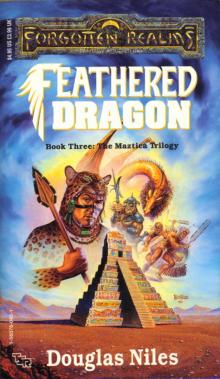 Feathered Dragon mt-3
Feathered Dragon mt-3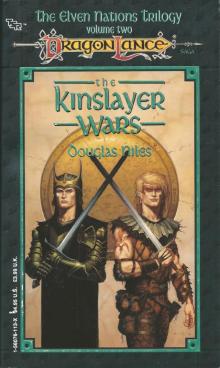 The Kinslayer Wars
The Kinslayer Wars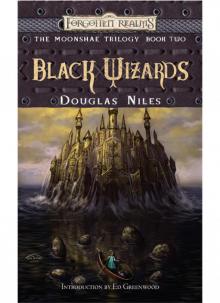 Black Wizards
Black Wizards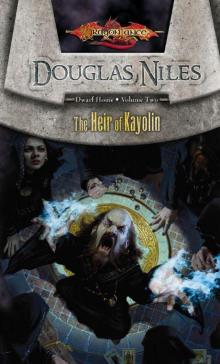 The Heir of Kayolin dh-2
The Heir of Kayolin dh-2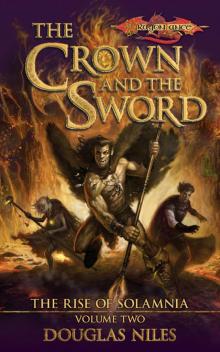 The Crown and the Sword tros-2
The Crown and the Sword tros-2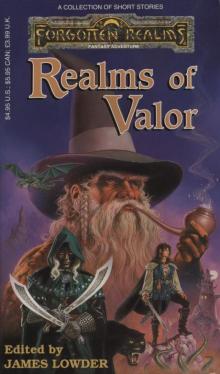 Realms of Valor a-1
Realms of Valor a-1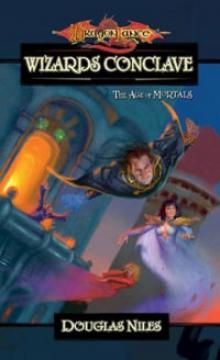 Wizards Conclave aom-5
Wizards Conclave aom-5 Fox On The Rhine
Fox On The Rhine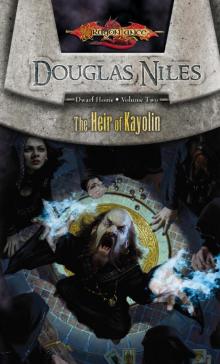 The Heir of Kayolin
The Heir of Kayolin Fox at the Front (Fox on the Rhine)
Fox at the Front (Fox on the Rhine)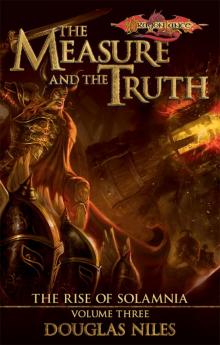 Measure and the Truth tros-3
Measure and the Truth tros-3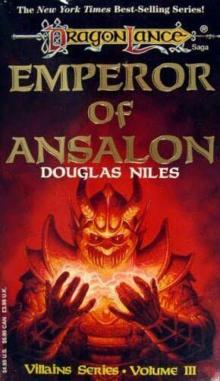 Emperor of Ansalon (d-3)
Emperor of Ansalon (d-3)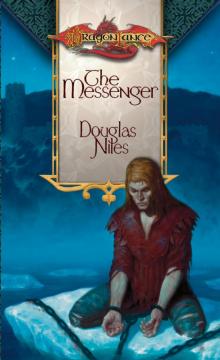 The Messenger it-1
The Messenger it-1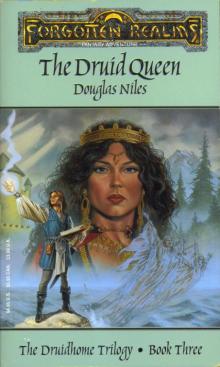 The Druid Queen tdt-3
The Druid Queen tdt-3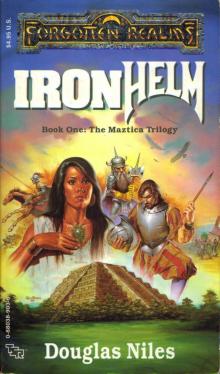 Ironhelm mt-1
Ironhelm mt-1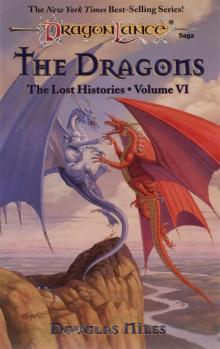 The Dragons lh-6
The Dragons lh-6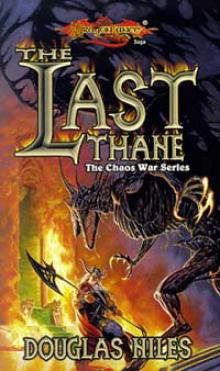 The Last Thane cw-1
The Last Thane cw-1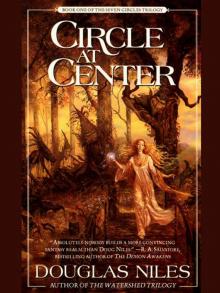 Circle at center sc-1
Circle at center sc-1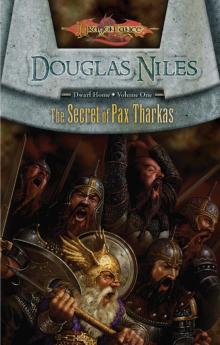 Secret of Pax Tharkas dh-1
Secret of Pax Tharkas dh-1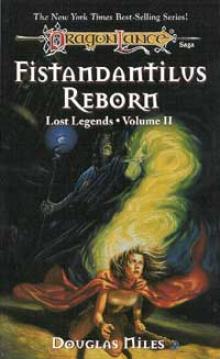 Fistanadantilus Reborn ll-2
Fistanadantilus Reborn ll-2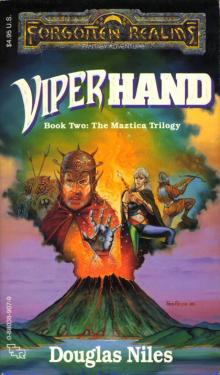 Viperhand mt-2
Viperhand mt-2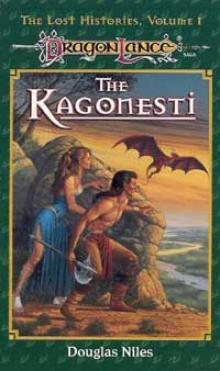 Kagonesti lh-1
Kagonesti lh-1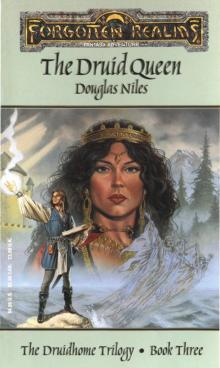 The Druid Queen
The Druid Queen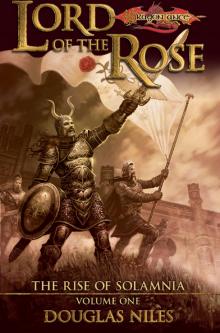 Lord of the Rose tros-1
Lord of the Rose tros-1 Goddess Worldweaver sc-3
Goddess Worldweaver sc-3 Eyeball to Eyeball (Final Failure)
Eyeball to Eyeball (Final Failure)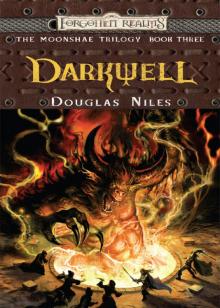 Darkwell
Darkwell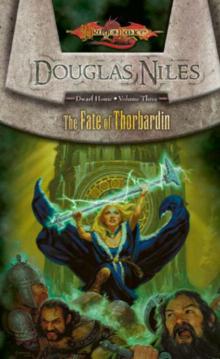 Fate of Thorbardin dh-3
Fate of Thorbardin dh-3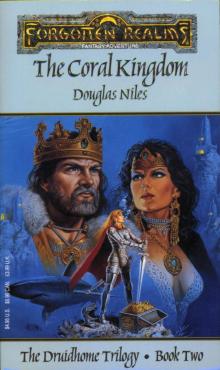 The Coral Kingdom tdt-2
The Coral Kingdom tdt-2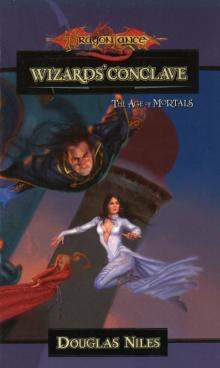 Wizard's Conclave
Wizard's Conclave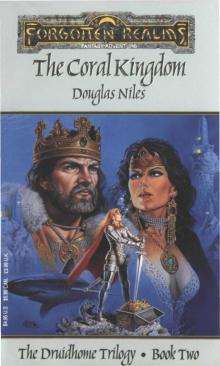 The Coral Kingdom
The Coral Kingdom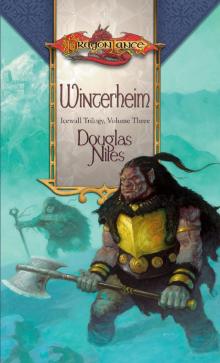 Winterheim it-3
Winterheim it-3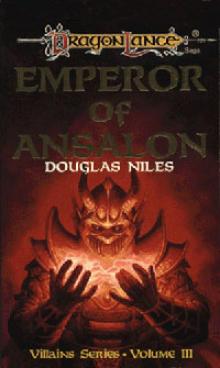 Emperor of Ansalon v-3
Emperor of Ansalon v-3 MacArthur's War: A Novel of the Invasion of Japan
MacArthur's War: A Novel of the Invasion of Japan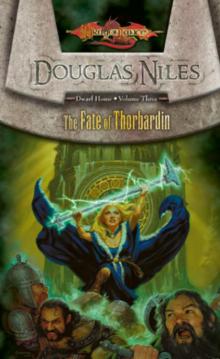 The Fate of Thorbardin
The Fate of Thorbardin The Rod of Seven Parts
The Rod of Seven Parts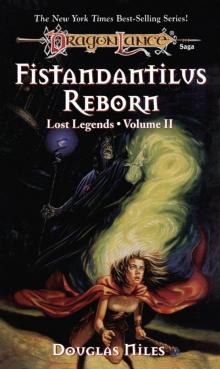 Fistandantilus Reborn
Fistandantilus Reborn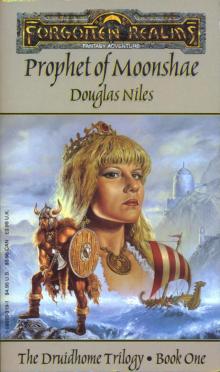 Prophet of Moonshae tdt-1
Prophet of Moonshae tdt-1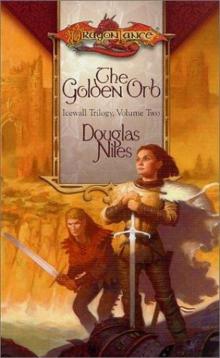 The Golden Orb i-2
The Golden Orb i-2